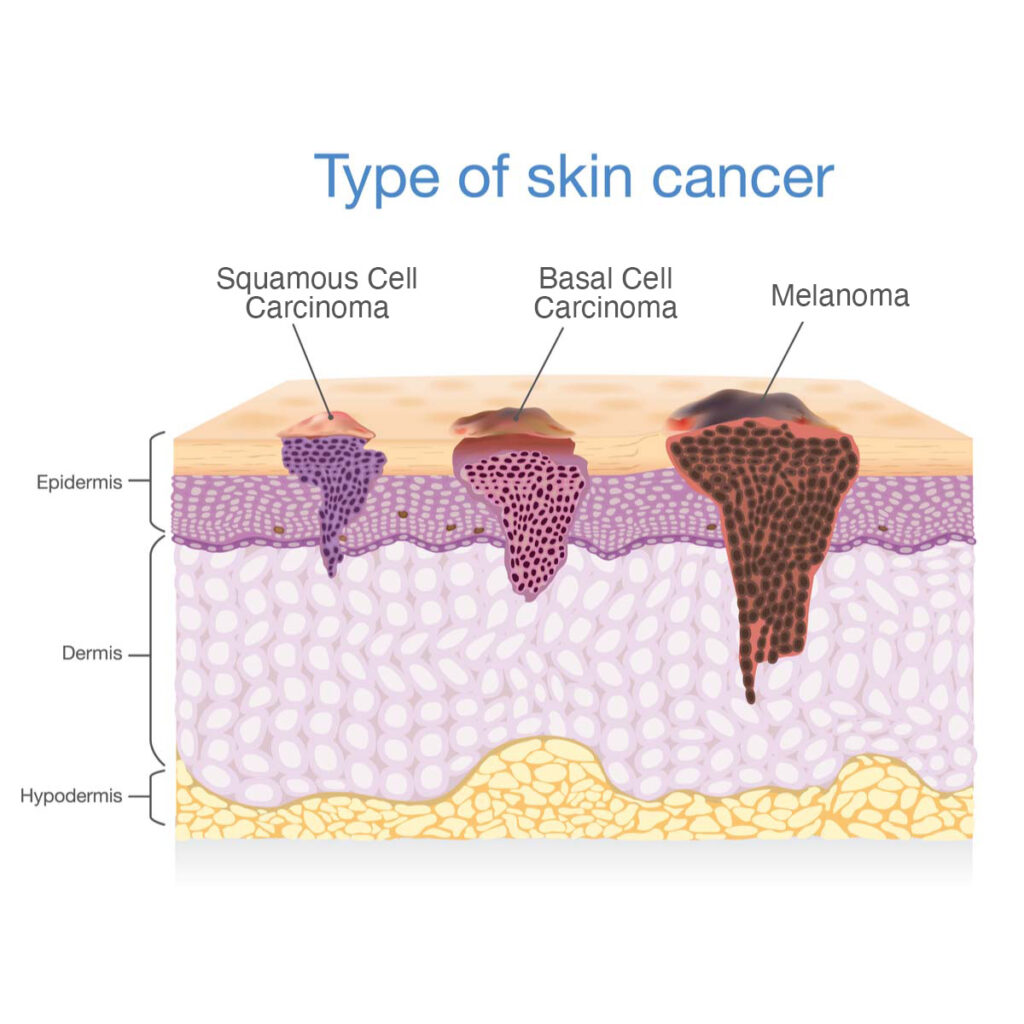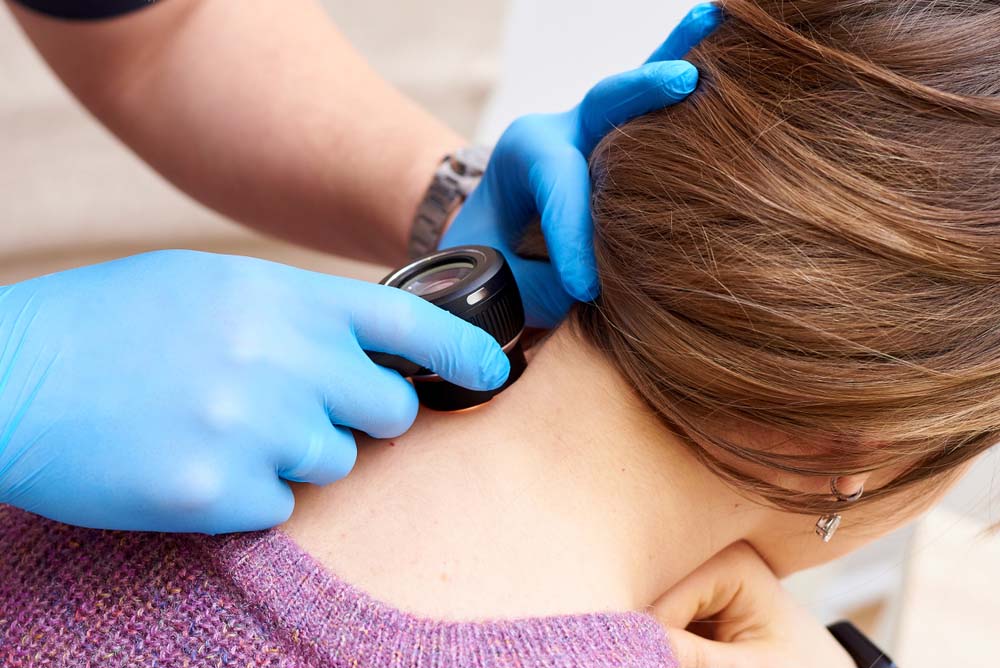We offer one of the most vital dermatology services in Haverford: skin cancer detection and treatment. Skin cancer is more prevalent than prostate, colon, breast, and lung cancers combined. Our experienced doctors excel in screening for and treating early signs of skin cancer, such as changes in moles or skin lesions. We believe that loving the skin you’re in starts with prioritizing your health and getting regular check-ups.

Types of Skin Cancer
We treat the three most commonly diagnosed types of skin cancer in Haverford: melanoma, basal cell carcinoma, and squamous cell carcinoma. The more sun exposure and damage our skin has, the higher our risk of developing one of these types of skin cancer. We are experts in skin cancer treatment, including skin cancer removal procedures, and offer expertise and consultation to our patients.
Melanoma
Melanoma, while less common than other types of skin cancer, is still more common than many other cancers and stands as the most serious form. If not detected and addressed early, melanoma can spread to other body parts, significantly increasing its threat. Signs to monitor include:
- Moles or spots on the skin altering in size, shape, or color
- Itchy, tender, or painful moles and spots
- Wounds that remain unhealed
- Moles that bleed or exude fluid
Basal Cell Carcinoma
Basal cell carcinoma is a common skin cancer that originates from basal cells, which are responsible for producing new skin cells. It typically appears on skin exposed to sunlight. To spot basal cell carcinoma, look for signs like changes in the skin such as:
- Pale, flesh-toned, or rosy nodules that seem somewhat see-through and might burst or bleed.
- Dark brown, black, or navy spots that slightly protrude.
- Smooth, flaky, and vividly red areas.
- White, glossy lesions that mimic scars yet lack clear borders.
Squamous Cell Carcinoma
Cutaneous squamous cell carcinoma (cSCC) is the second most common skin cancer. It originates from squamous cells, the flat cells in the top skin layer that regularly shed. Excessive UV radiation can damage these cells’ DNA, causing changes that may lead to squamous cell carcinoma, which typically appears as:
- Flaky red patches
- Open wounds
- Rough, wart-like skin
- Raised bumps with central dips
- Crusting, itchy, bleeding sores

Detecting Skin Cancer Symptoms
At Bala Dermatology, we emphasize the importance of regular skin cancer screenings. Sun exposure and genetics both significantly influence your risk, and symptoms can vary widely. That’s why we stress the need for a medical dermatologist to provide a professional diagnosis if you notice any unusual changes or growths on your skin. We are dedicated to offering effective skin cancer treatment in the Haverford area, including for melanoma and squamous or basal cell carcinoma, and ensuring that our screenings are conducted early to keep you healthy.
For more information on our skin cancer treatments in Haverford, book your screening today by calling us at (610) 664-3300.
